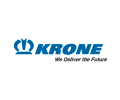Road transport, shippers and energy groups in Europe have called for carbon neutral fuels to be recognised as a long-term decarbonisation solution, alongside electrification and hydrogen, for a well-functioning and stable EU logistics sector.
 In a joint letter sent to EU Executive Vice President Frans Timmermans, the International Road Transport Union (IRU), the European Shippers’ Council, and FuelsEurope – representing road transport operators, shippers and energy suppliers – have called for the full and equal recognition of liquid carbon neutral fuels for internal combustion engines, alongside electric and hydrogen fuel cells, in proposed EU heavy-duty vehicle (HDV) CO₂ regulations.
In a joint letter sent to EU Executive Vice President Frans Timmermans, the International Road Transport Union (IRU), the European Shippers’ Council, and FuelsEurope – representing road transport operators, shippers and energy suppliers – have called for the full and equal recognition of liquid carbon neutral fuels for internal combustion engines, alongside electric and hydrogen fuel cells, in proposed EU heavy-duty vehicle (HDV) CO₂ regulations.
For a well-functioning and stable EU logistics sector, road transport operators and shippers must be able to decide which technology is best suited for different kinds of operations to achieve our common goal: carbon neutrality by 2050.
However, attaining this target depends on the technology options allowed by the upcoming legislation, which impacts both vehicles and infrastructure.
IRU EU Advocacy Director Raluca Marian said, “The vital logistics chains that supply EU citizens with food, medicine and other essentials should not be subject to an uncertain leap into the dark which could jeopardise their stability.”
“A CO₂ standard proposal for Europe’s logistics sector should push for all options to achieve carbon neutrality. A complete move away from combustion, notwithstanding that this too can achieve the same objective, depending on what is burnt, can only be described as an unnecessary and risky experiment,” she added.
Carbon neutral fuels are also the most realistic option to decarbonise aviation, most maritime transport, and the existing fleet of road vehicles. The availability of sustainable biomass is more than sufficient to satisfy the demand in advanced biofuels for the three transport modes.


.gif?rand=1258)










